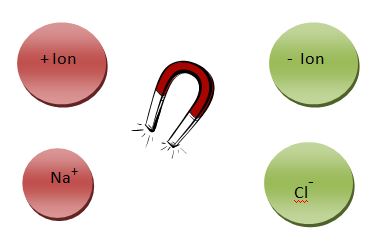difference between assignment and novation: Contracts: The Critical Difference Between Assignment and Novation Contracts and Commercial Law UK
Contents:

The novation deed will then allow you to substitute yourself for someone else willing to do this work. By contrast, assignment and assumption only transfer a party’s contractual rights and benefits. Therefore, the original assignor/seller still has an obligation. This party can actually be held responsible if the assignee/purchaser doesn’t fulfill the contractual performance. In order to protect itself from potential liability, an assignor may want to obtain an indemnity from the assignee. For a person drafting a contract, it is important to understand these subtle differences, between sub-contracting and assignment.

- If the developer has sold the building or created a full-repairing lease, then their right would be to nominal damages only.
- While novation and assignment are similar, there are important differences between them.
- Novation is basically the transfer of rights and obligations that would accrue under a contract.
Under an assignment, you are only transferring some rights and obligations to another party. However, you’ll still bear the liability of those rights and obligations. Contracts of a personal nature, such as employment contracts, cannot be assigned.
Differences between Novation and Assignment
The total amount of the contract does not change; only the parties have changed. After all, you got a better deal with a novation of contract over the original; as opposed to the original, which you had to accept because you or your partner didn’t want to be a party to the deal. For instance, the new firm could seek to implement a new contract that represents its ownership position if it acquires another company. Additionally, Novation may be used to add or remove parties from a contract as well as transfer a contract from one party to another. The UK’s financial services sector must help regulators spot developing financial crime threats as the cost-of-living crisis starts to bite, according to one legal expert. Prior to entering into any construction contracts, all parties want to ensure the contract has been drafted in their favour.
- Therefore, the original assignor/seller still has an obligation.
- Andrew Bloomenthal has 20+ years of editorial experience as a financial journalist and as a financial services marketing writer.
- Under novation, all of the rights and obligations of one party is transferred to a third party by way of a replacement contract.
- A quasi contract is court-created legal agreement between two parties who did not have a previous obligation to each other.
- Therefore, the question considered by the court was whether Lidl was bound to observe the terms of the Trustee Contract and in particular clause 18, given that benefit of the contract had been assigned to them.
Contracts are a part of real estate transactions, so novation is a valuable tool in the industry. If buyers and sellers enter into a contract, novation allows them to change it when issues arise during due diligence, inspection, or closing. In case of novation, the terms and conditions of the contract may or may not be changed. However, alteration of the contract is always due to the changes in the terms and conditions of the contract. This write-up will increase your knowledge on the significant differences between novation and alteration, using easily understandable examples. However, the assignor would usually be protected (‘indemnified’) from any future claims or disputes by a ‘letter of assignment’.
The act of replacing one contractual duty with another is known as novation. A contract’s rights and duties can be transferred from one party to another through the use of an assignment of contract, which is a legal instrument. This can be done for a number of reasons, including when the original party is no longer able to uphold their end of the bargain or when they want to transfer their rights to another party.
This is because these contracts have been signed with parties specifically for certain exclusive qualities that these parties have. (For example, the parties’ skills or styles of performance.) The parties to these contracts therefore cannot be “replaced” so easily. This can only occur if the contracting officer deems it to be in the best interest of the government. There is simply no automatic right to have a contract novation agreement approved. Before assigning your contracts rights to a third party, whether it is for financing or not, make sure you seek help from legal counsel and involve the contracting officer. Also, look into whether a continued relationship between the buyer and seller can run afoul of the similarly situated small business rules.
Difference Between Novation and Alteration
The new owner may want to retain the business’s contractual obligations, while the other parties want to continue their agreements without interruption. Hence, the parties are required to perform the new agreed terms and conditions of the contract only. Their friendly legal services advisers will call you to talk about your claim and give you free, no-obligation advice. National Accident Law may pay us a marketing fee for our services. Assignments are typically used in the construction industry where collateral warranties given by consultants, contractors or sub-contractors need to be assigned to subsequent owners/tenants. I must admit, from what I’ve seen, they are often confused in contracts.
Bettering Results: Learn Contract Drafting & Negotiation From Top Law Firm Partners – Register Now! – Live Law – Indian Legal News
Bettering Results: Learn Contract Drafting & Negotiation From Top Law Firm Partners – Register Now!.
Posted: Mon, 27 Feb 2023 10:19:26 GMT [source]
Moreover, introduction of a new party into an existing contract will result into novation of a contract i.e. creation of a new contract between original party and new party. As the courts have interpreted that transfer of obligations can be undertaken through novation, the assignment clause in a contract must clearly deal with novation, if the intention is to transfer obligations. The court held that the benefit which passed to Lidl by way of the deed of assignment did not require Lidl to perform the obligations of Mr Jones under the Trustee Contract. The only person who clause 18 of the Trustee Contract was binding on was Mr Jones. The transfer to Lidl could not impose on Lidl the obligation to perform Mr Jones’ obligations and these therefore remained with Mr Jones.
When there is the cessation of contractual relation amidst the parties, i.e. promisor and promisee, it is called the discharge of contract. This means that the parties are no longer liable for the performance of the contract. Benefit of the contractA party to a contract can transfer the benefits and rights under that contract to the third party. The third party will then be able to enforce performance of the contract in his own right just as the original party would have been able to do. The rights you have as the mower of the lawn is to receive payment. And novation is the ability to transfer rights and obligations that you have under a contract.
When is it ‘No Novation’?
https://1investing.in/s must be completed in writing, specifying the rights that are being transferred. There is no obligation to obtain consent of other parties to the contract (unless the contract stipulates that you must do so – and they generally do) but you do have to notify other parties of the assignment. Whilst assignment and novation achieve a similar purpose, there are some very distinct differences that parties to a contract should be aware about when deciding which way to proceed. In common parlance, sub-contracting and assignment are used interchangeably, however, a significant difference lies between the two when one examines the terms from a legal stand point. This post aims to discuss the concept of Sub-Contracting and Assignment and explains the key difference between the two concepts. The judge held that, since such wording was absent here, MW had transferred all its rights, both accrued and future, to EWHL, including its right to sue Outotec.
Most contracts will say you can’t assign the rights without the other party’s consent. But absent that sort of clause in a contract, you could transfer your right, in this case, to receive payment, to someone else. If you need help with novation agreements or other legal matters, you can post your legal need on UpCounsel’s marketplace. UpCounsel accepts only the top 5 percent of lawyers to its site. Lawyers on UpCounsel come from law schools such as Harvard Law and Yale Law and average 14 years of legal experience, including work with or on behalf of companies like Google, Menlo Ventures, and Airbnb.
Usually this is the transfer by one party of its rights and remedies, under a contract with a counterparty, to a third party. However, importantly, the assignor remains liable for any obligations it owes under the contract. As an example, Party A can assign to Party C its right to receive goods under a contract with Party B, but it will remain liable to pay Party B for those goods. Section 136 of the Law of Property Act 1926 requires a valid statutory assignment to be absolute, in writing, and on notice to the contractual counterparty.
A difference between assignment and novation requires the agreement of all THREE parties involved – the assignor, the assignee and the third party to whom the rights are being transferred. An assignment of rights under a contract is normally restricted to the benefit of the contract. Where a party wishes to transfer both the benefit and burden of the contract this generally needs to be done by way of a novation. An assignment does not require the consent of all parties to the contract to transfer the rights. Additionally, you do not necessarily have to notify the other parties to an agreement that an assignment is taking place. However, as a commercial courtesy, it is wise to notify your business partners that you intend to assign your rights to a third party.

The assignor should be aware of the potential liability risk if the assignee doesn’t perform their duties as stated in the assigned contract. If you require legal advice on assigning or novating a contract, and/or on drafting the necessary documents to execute an assignment or novation, you may get in touch with one of our corporate and commercial lawyers. As discussed above, the main difference between an assignment and a novation is that a novation transfers your obligations and rights under that contract.
No consideration, no contract
In the financial markets, using a clearinghouse to vet a transaction between two parties is known as a novation. Full BioMichael Boyle is an experienced financial professional with more than 10 years working with financial planning, derivatives, equities, fixed income, project management, and analytics. Lee is a software engineer, who entered into a contract with JHK Bank, to develop an application for the bank, for Rs. 1,50,000 by the end of December 2021. Subsequently, the parties mutually agreed that the app can be developed by February 2022.

Contracts are critical components for private or public companies who win a bid to do work for governments. If the contractor suddenly can’t deliver on the contract or other issues prevent it from completing its task, the contractor can ask the government to recognize another party to complete the project. Because a novation replaces a contract, it can be used in any business, industry, or market where contracts are used.
An obligation to a third party cannot be assigned without their consent. A solution may be for the parent company to pay both its subsidiary and the third party for the construction contracts to be assigned to the parent . The assignment provisions would give the parent the obligation to finish the project, which it may be able to do without the third party. On the other hand, a Deed of Novation transfers all the rights and obligations under a contract entirely to another party. This effectively ends your contract and instead creates a new contract between the parties involved.
Every contract can be novated and novation can be effective only when there is a new contract and not a new agreement. Hence, mere agreement to substitute the existing contract will not be binding unless it has been accepted and executed mutually by all the parties. A new contractual obligation arises when parties novate a contract. Our standard assignment agreement can be used for most assignments . The other original party may not understand the benefit to them of having the original contract novated and require extra information about the process that is time consuming to provide. The exception to the rule is that if the original contract was signed as a deed, you need to use a deed to novate it.

Very generally, if you are unsure whether you should assign or novate, we recommend that you novate and obtain consent of all parties. We offer a number of novation and assignment agreement templates for different situations. Terms in an original contract can restrict or prohibit assignments. This is particularly common in the construction industry but can apply in any contract. If you attempt to assign a contract that cannot be assigned, you risk invalidating the original contract. UpCounsel is an interactive online service that makes it faster and easier for businesses to find and hire legal help solely based on their preferences.
The contract may have also been violated by a breach of warranty. A breach of contract takes place when one party does not fulfill their obligations under the contract or violates the provision, which then breaches it. Assignment contract is contract between two parties in which one party transfers its rights under the agreement to the other. The parameters of the assignment, including the amount to be paid and any additional requirements, will be outlined in the assignment contract. In a novation the original contract is extinguished and is replaced by a new one in which a third party takes up rights and obligations which duplicate those of one of the original parties to the contract. Novation does not cancel past rights and obligations under the original contract, although the parties can agree to novate these as well.
